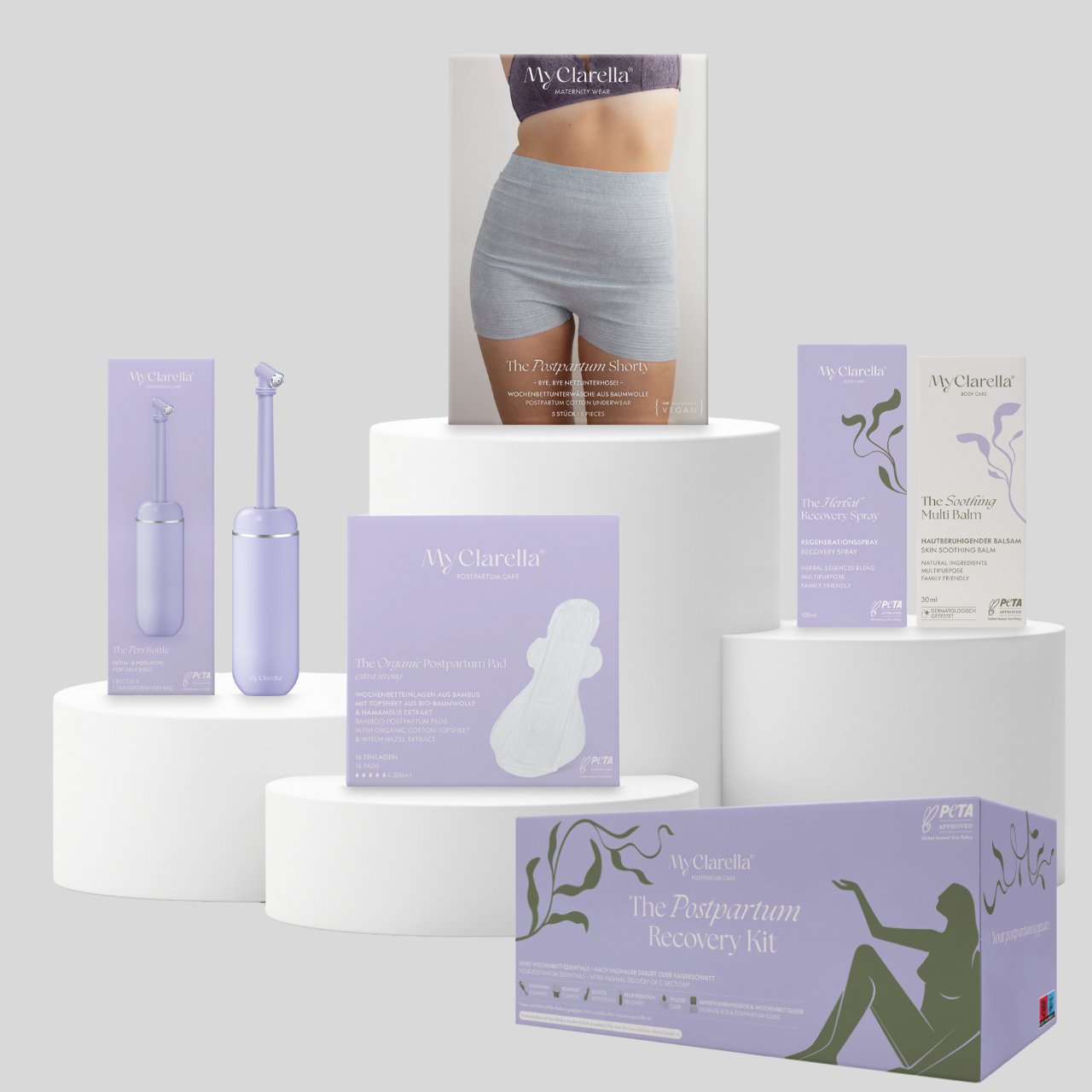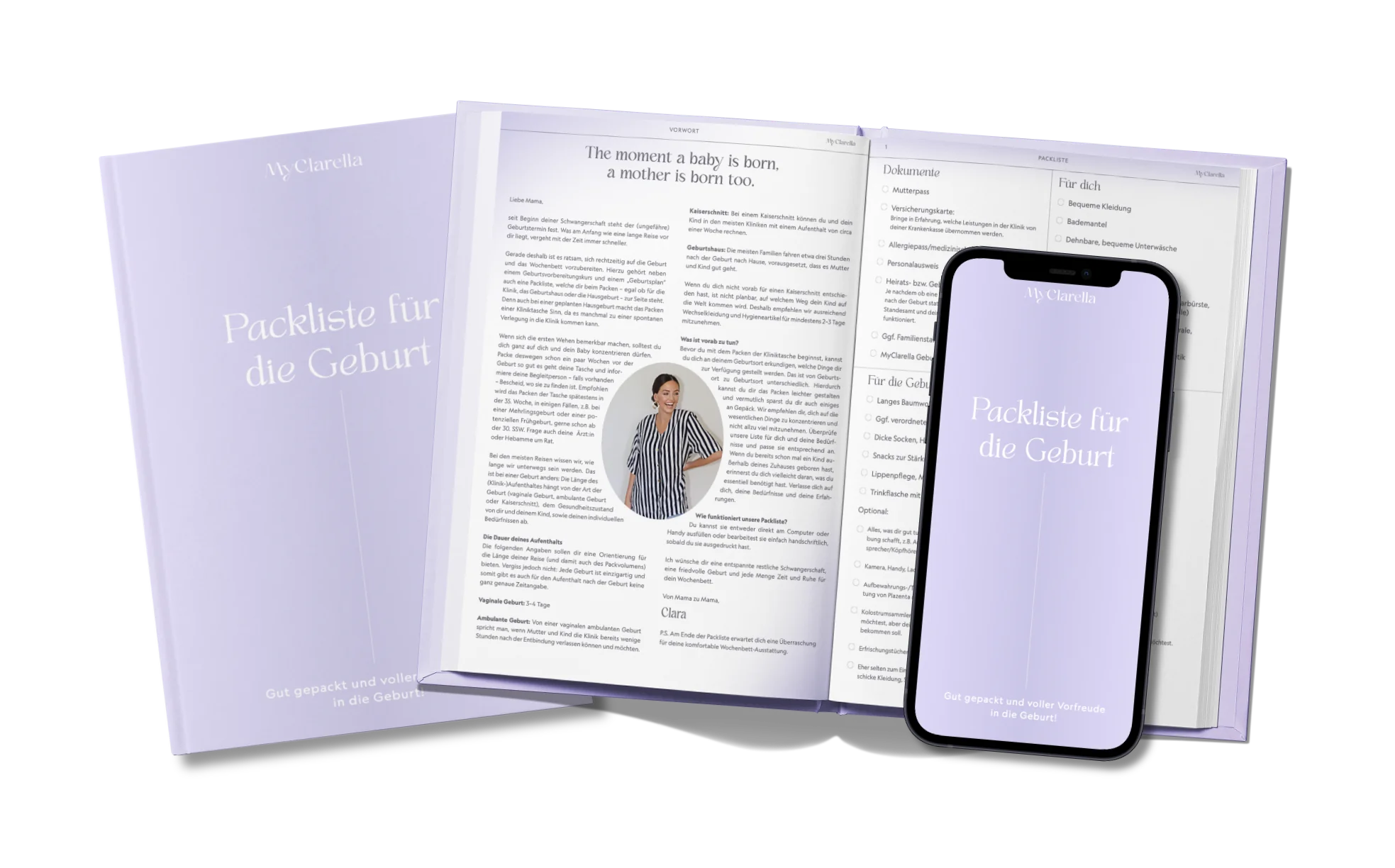Birth is not just the moment when you bring your child into the world. It is also a masterpiece, no matter what form it takes. Your body performs something extraordinary during birth. For this reason, the recovery that follows is not only well-deserved but also necessary.
In the following weeks, your uterus will shrink, any injuries sustained during birth will heal, and your body and soul will regenerate. In addition, the postpartum period is a time out for you and your child to rest and get to know each other. In short: the postpartum period should be as stress-free as possible.
With this goal in mind, it can be helpful to clarify some organizational questions during pregnancy to create the right conditions. True to the motto: well planned is half the battle.
As a little help, we would like to give you the following five tips to make preparing for the postpartum period easier.
1. Create enough free time
The time in the postpartum period belongs to you and your child, so the outside world may have to cope without you. It is therefore worth looking closely at your calendar in advance and planning your appointments. Have you already planned private appointments, are there work appointments that you can postpone or, for example, appointments at the hairdresser that were arranged in advance? Appointments, especially if they take place outside the home, can be a great strain in the first few weeks after the birth. So feel free to cancel and postpone as much as you want.
Of course, some appointments cannot be avoided: for example, you can hardly avoid registering your child with the authorities. You also need to register with the health insurance company, and possibly acknowledge paternity and medical follow-up care. However, the effort can be kept to a minimum by preparing: for example, ask yourself in good time how you will get to the doctor's office or the office, and who might be able to accompany you. You can also pre-fill the documents you need for authorities and health insurance companies during pregnancy. The more you can do before the birth, the more valuable rest time you and your child will have.
2. Seek support in your private environment
Who does the shopping, prepares the meals, turns on the vacuum cleaner? Perhaps some older siblings need to be looked after?
You are welcome to get support for these tasks: Ask yourself early on who can be with you during this time and take the pressure off you. If you are in a relationship, your partner may have the opportunity to take at least part of the holiday. This not only takes the pressure off in everyday life, but also gives him/her time with the child. A close person you trust from your family or circle of friends can also help you during the postpartum period.
This is not just about support with complex everyday tasks. Even seemingly banal activities, like a well-deserved shower or even a relaxing bath, are much easier when you know that your baby is well looked after in the meantime. The sooner you deal with this question, the better the person you choose to trust can keep the time free and adapt to your needs.
3. A household helper can make your life easier
When it comes to keeping your home clean, six to eight weeks is a long time. Especially at the beginning, everything around your child is new, exciting, and much nicer than cleaning. However, you should of course feel comfortable in your home. To avoid having to sweep with your newborn in your arms, a household helper can be an incredible asset. This can help you, as needed, with cooking and especially with looking after older siblings.
If you cannot find anyone to help you locally, this does not mean that you are completely on your own. In addition, your health insurance will cover the full cost of a household helper if you cannot get help from your surroundings. Start looking for the right household helper early on and talk to your health insurance company about covering the costs.
4. Your midwife will be happy to accompany you
So the household is taken care of and the calendar is free. But what about the actual postpartum care? With the MyClarella Post Partum Kit, you are optimally equipped, but there can always be unanswered questions.
Your midwife will be happy to provide you with intensive support even after the birth. During this phase, your midwife will be there to give you all kinds of helpful tips on breastfeeding and changing diapers, monitor your uterus as it shrinks, and help you and your child settle in. Your midwife can visit you once a day for the first 10 days. In addition, 16 further consultations are possible in the first 12 weeks after the birth.
If you decide against having a midwife during pregnancy and birth, you can also look for someone just for the postpartum period. Be sure to discuss the possibility of someone accompanying you in advance so your midwife can plan the visits in good time.
5. Get breastfeeding advice if you are unsure
Sooner or later during your pregnancy, you will ask yourself a crucial question: Do you want to breastfeed or not? If yes, it makes sense to get everything you need to make breastfeeding easier. But even with the best tools, there is no guarantee that this new experience will work for you and your child straight away - and that's normal. After all, you still need to get to know each other and get used to each other.
If you are unsure, a breastfeeding consultant can be helpful. They will support you with tips and tricks, advise you on sucking problems and pain, and answer your questions. It is worth considering breastfeeding counseling, especially if you do not have a midwife for your postpartum period. In some cases, health insurance companies even cover part of the costs.
So you see, with the right preparation, you can get some issues off the table - or rather out of bed - before your child is born. Of course, pregnancy is an exciting time and you'll probably have a lot to keep you busy. But if you think about a few basic things beforehand, you can concentrate fully on yourself and the new family member during the postpartum period.
Author: Constanze Dochantschi







Leave a comment
All comments are moderated before being published.
This site is protected by hCaptcha and the hCaptcha Privacy Policy and Terms of Service apply.